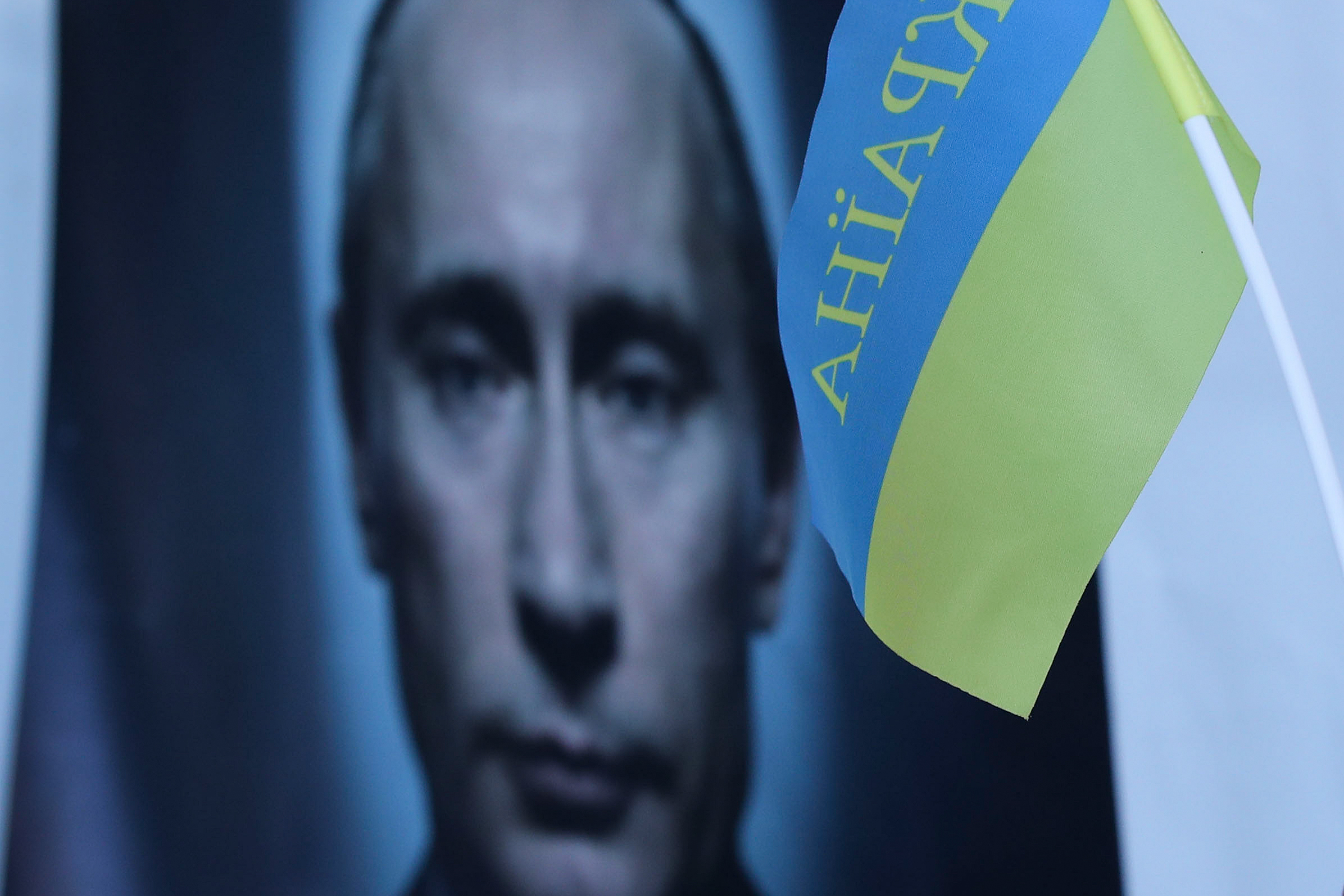The IPI global network today condemns the efforts by Russian authorities to censor independent media reporting on the invasion of Ukraine and the multiple detentions of domestic and international journalists covering anti-war protests across the country last night.
Hours after the invasion began, Russia’s government-controlled communications and media regulator, Roskomnadzor, issued an ominous statement warning that media outlets were “obliged” to only publish verified data and information on the conflict from “official Russian sources”.
The department said that media knowingly “disseminating false information” could face sanctions under article 13.15 of the Code of Administrative Offenses, which carries a maximum administrative fine of up to 5 million rubles (€53,200).
Roskomnadzor stressed that spreading false information on the internet would result in the immediate blocking of such materials under Article. 15.3 of Federal Law No. 149-FZ, a restrictive piece of legislation passed in 2019 which allows extrajudicial blocking of media websites accused of spreading misinformation.
Soon after the warning was given, there were reports in media and on social media that Russian media platforms were being contacted directly by Roskomnadzor and instructed to take down articles or delete certain information or images from published articles.
Among them was the Krasnoyarsk edition of Prospekt Mira, whose editors reported they were ordered to remove news about the strikes on Ukrainian cities. Roskomnadzor said the report contained “false reports about acts of terrorism” and “inaccurate socially significant information”, without providing details. The news article – entitled “Media reports explosions in cities and the capital of Ukraine” – was taken off the website.
Journalists detained covering anti-war rallies
Later that evening, three correspondents from the Russian service of Radio Free Europe/Radio Liberty were detained in Moscow while covering a protest against the war, despite one of them repeatedly identifying himself as a journalist. The trio were taken away from the crowd on Pushkinskaya Square and taken to a nearby police station. They were released without charge shortly after.
There were multiple reports of other journalists being detained or facing pressure from security officials, despite being clearly identifiable as members of the press. In St. Petersburg, Interfax correspondent Dmitry Gavrilov was detained at an anti-war rally as he was taking a photograph of a “No to War” poster. Police refused to release him after she showed his journalistic ID.
In the western city of Pskov, the editor-in-chief of the Pskovskaya Guberniya newspaper, Denis Kamalyagin, and three of his colleagues were detained. Nataliya Vasilyeva, the Moscow correspondent for the British newspaper the Telegraph, reported that she was briefly detained by police in the capital. Many of the professional media workers who attended rallies as citizens rather than in a journalistic role were also detained.
“IPI strongly condemns the cynical efforts by Russian authorities to supress and censor independent reporting on Russia’s invasion of Ukraine”, IPI Deputy Director Scott Griffen said. “We strongly oppose the attempts by the government and security forces to threaten media outlets into silence with fines or stifle independent journalism which threatens to puncture the Kremlin’s narrative. The arrest of clearly identifiable journalists who were simply covering a peaceful anti-war demonstration is a worrying sign of the increasing censorship likely to follow.”
IPI praised the courage of journalists in Russia who have been resisting state censorship and speaking out in the name of peace. On Thursday, more than 200 Russian journalists, including those from Novaya Gazeta, Ekho Moskvy, Kommersant, Dozhd, Ekho Moskvy, Mediazona – and state outlets – signed an open letter opposing what the Kremlin called an “special military operation” against Ukraine.
In response, Elena Chernenko, a special correspondent from Kommersant who organized an open letter from journalists, was expelled from the Russian Foreign Ministry pool of journalists and barred from attending Ministry events.
Independent media under attack
Over the past year, as IPI has documented, independent journalism in Russia faced the biggest crackdown in more than a decade, as the authorities moved to solidify control by weaponizing a Soviet-style “foreign agent” law to blacklist independent media outlets and impose crippling fines, forcing advertisers to pull out and starving media financially.
The law requires branded outlets to disclose sources of funding and put a disclaimer in capital letters above every text they publish, warning viewers they are about to read content from a “foreign agent”. If media do not comply, they face large fines and criminal charges. Almost every single major investigative media outlet in Russia was added to the justice ministry’s register, as well as major broadcasters such as Dozhd TV, meaning citizens reading independent reporting on the war will see the “foreign agent” label.
At the start of the coronavirus pandemic, lawmakers passed new additions to the criminal code, articles 207.1 and 207.2, under which media found to have deliberately spread “false information” about serious matters of public safety such as COVID-19 would face fines of up to €23,000 and up to five years in prison. The country’s media regulator Roskomnadzor continuously issued take down and correction orders and threatened to block news websites over coverage, while one journalists were placed under criminal investigation after critical articles. International correspondents working from Russia were also refused visa extensions and forced to leave the country.
—————————————————-
Yesterday IPI’s global network expressed support for and solidarity with our members and journalist colleagues in Ukraine and demanded that journalist safety and the right to cover developments independently and without fear of retaliation be protected.
Earlier today, IPI joined dozens of organisations in calling on the international community to provide any possible assistance to those who are taking on the brave role of reporting from the war zone that is now Ukraine.
